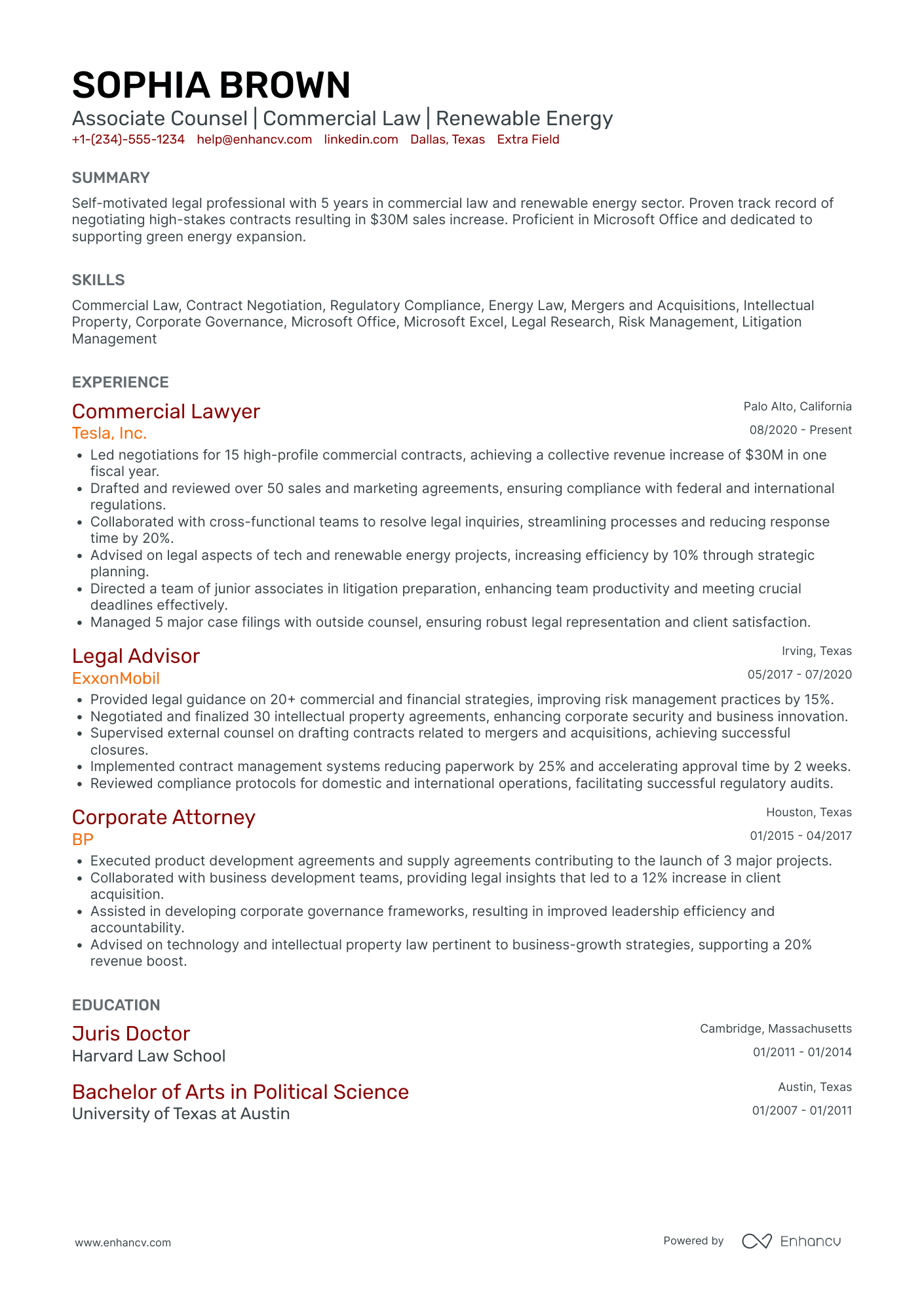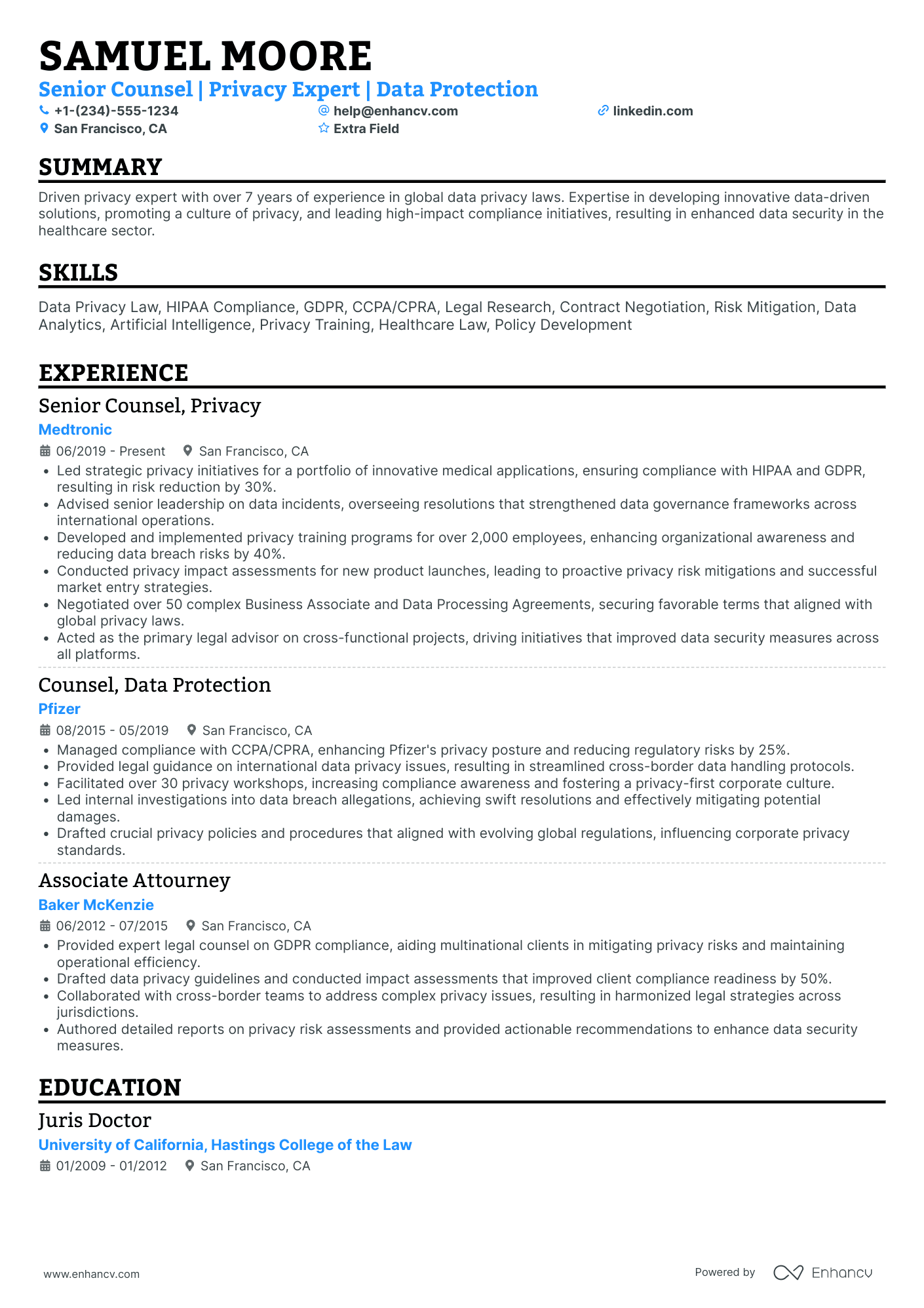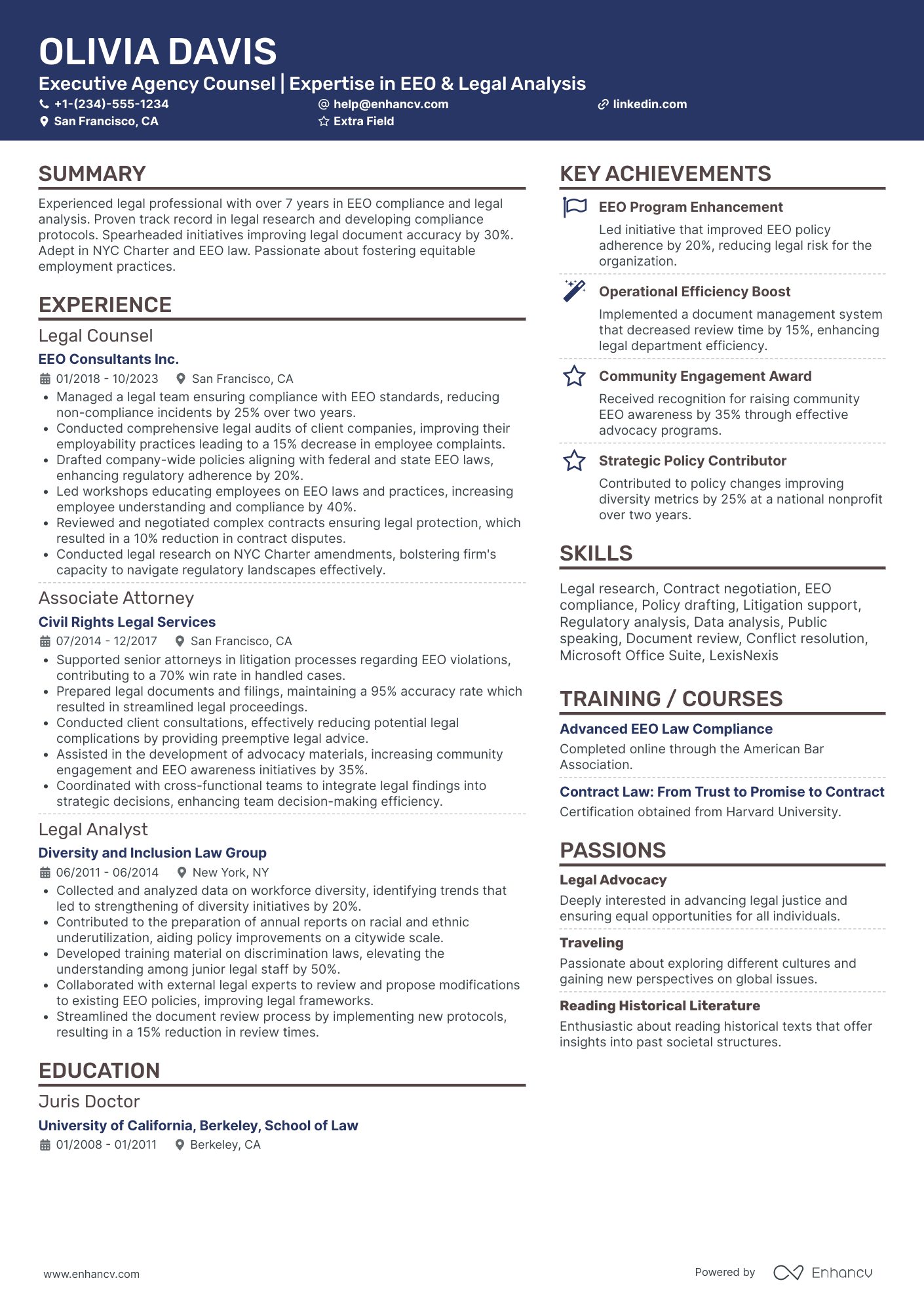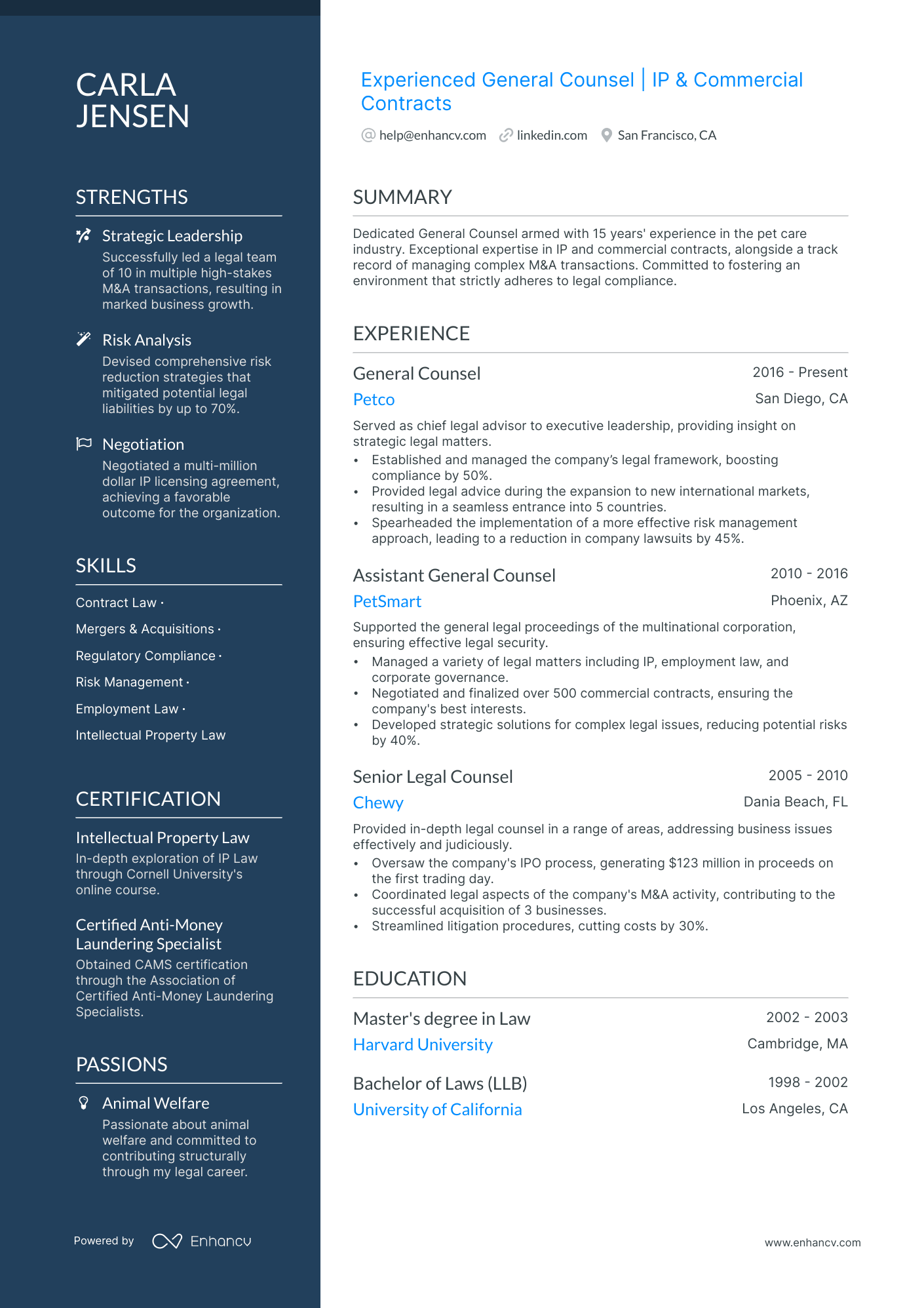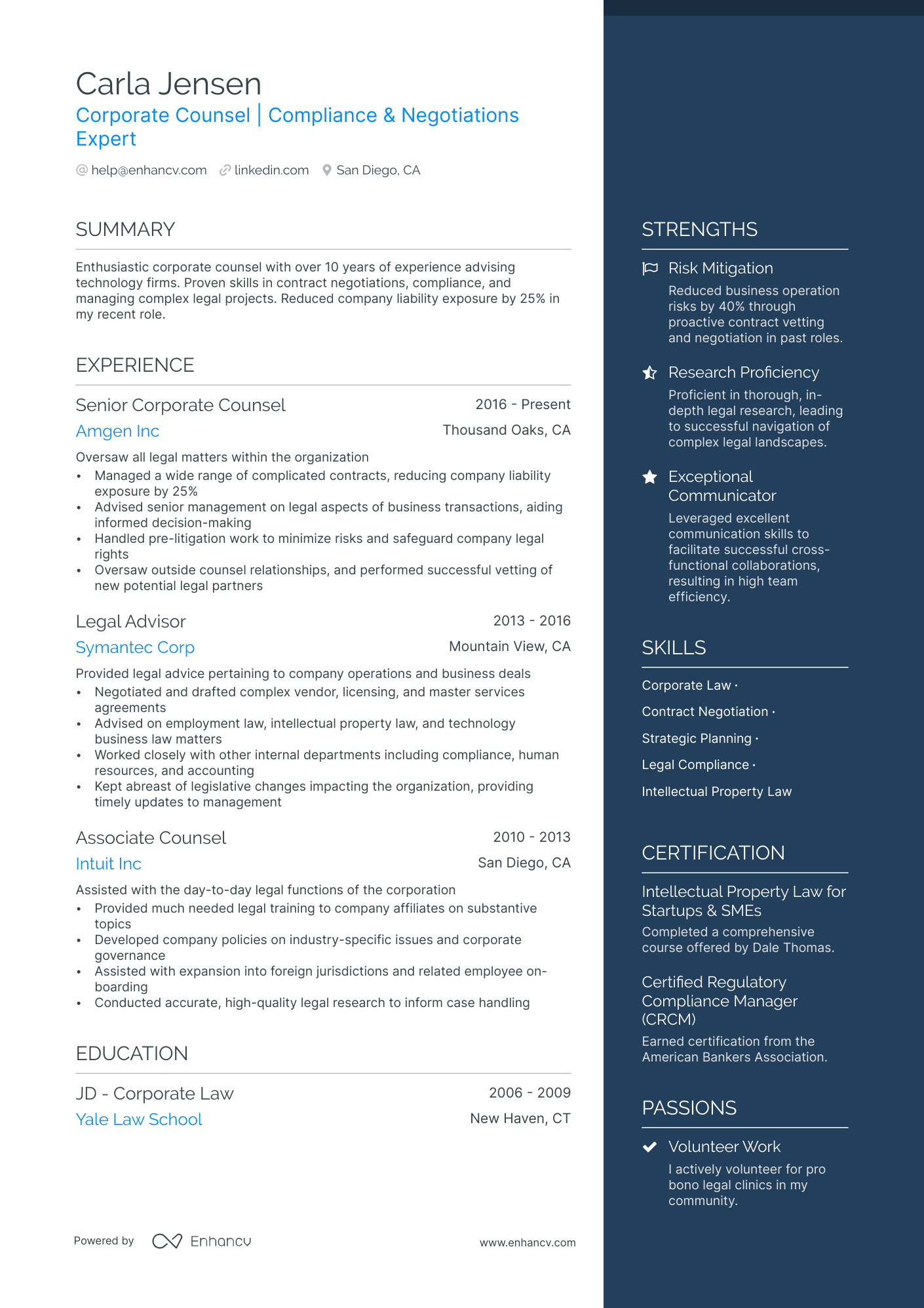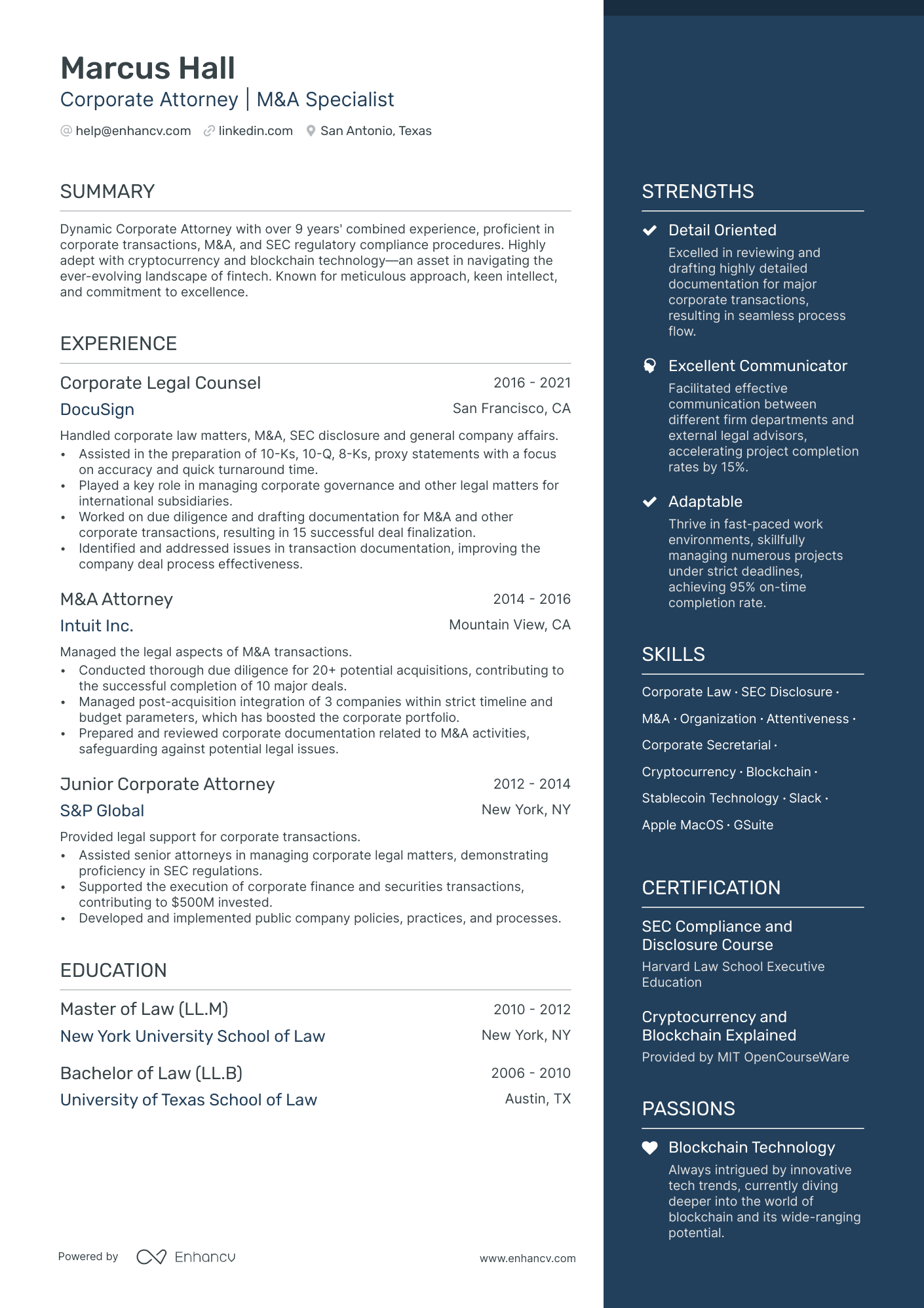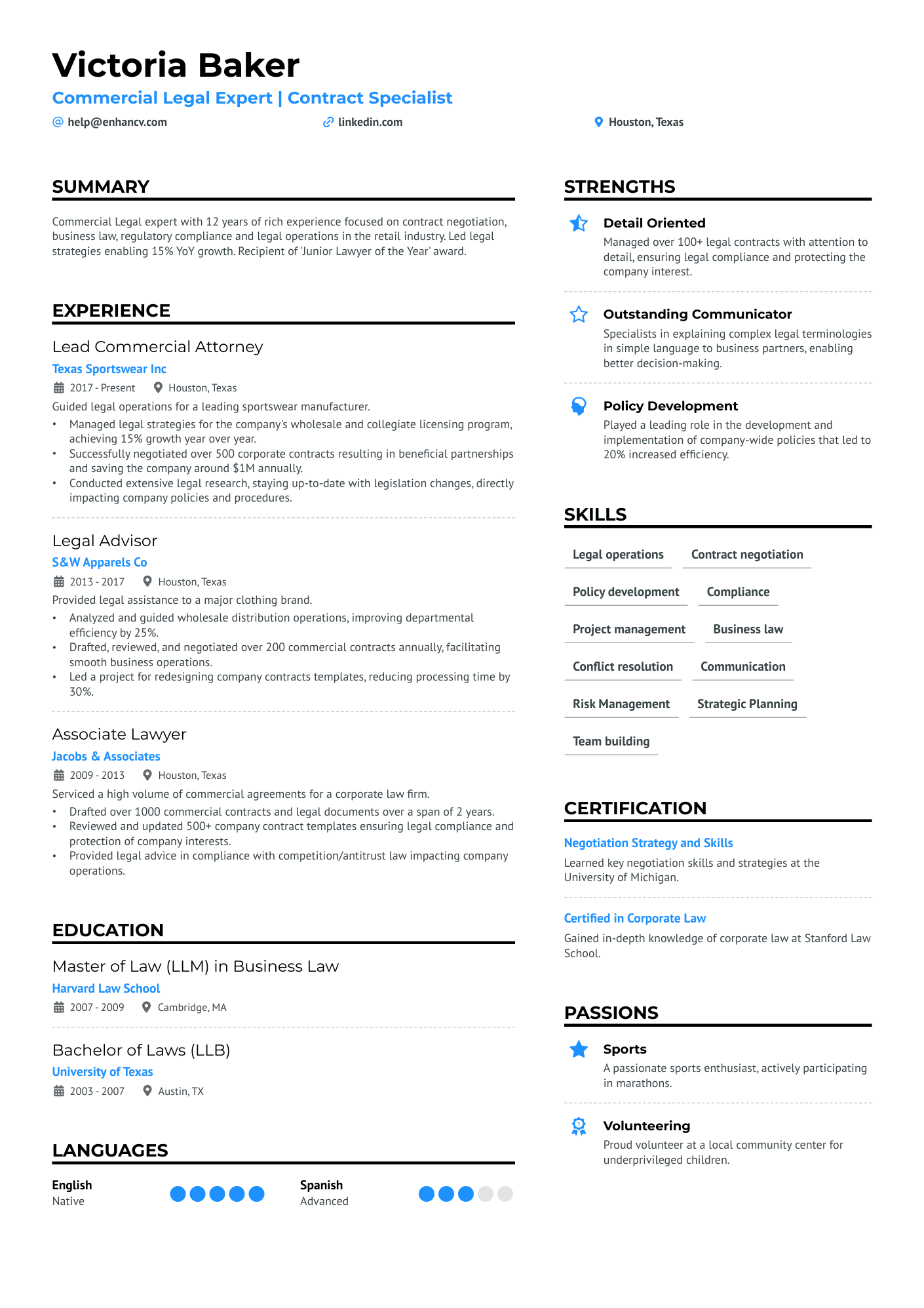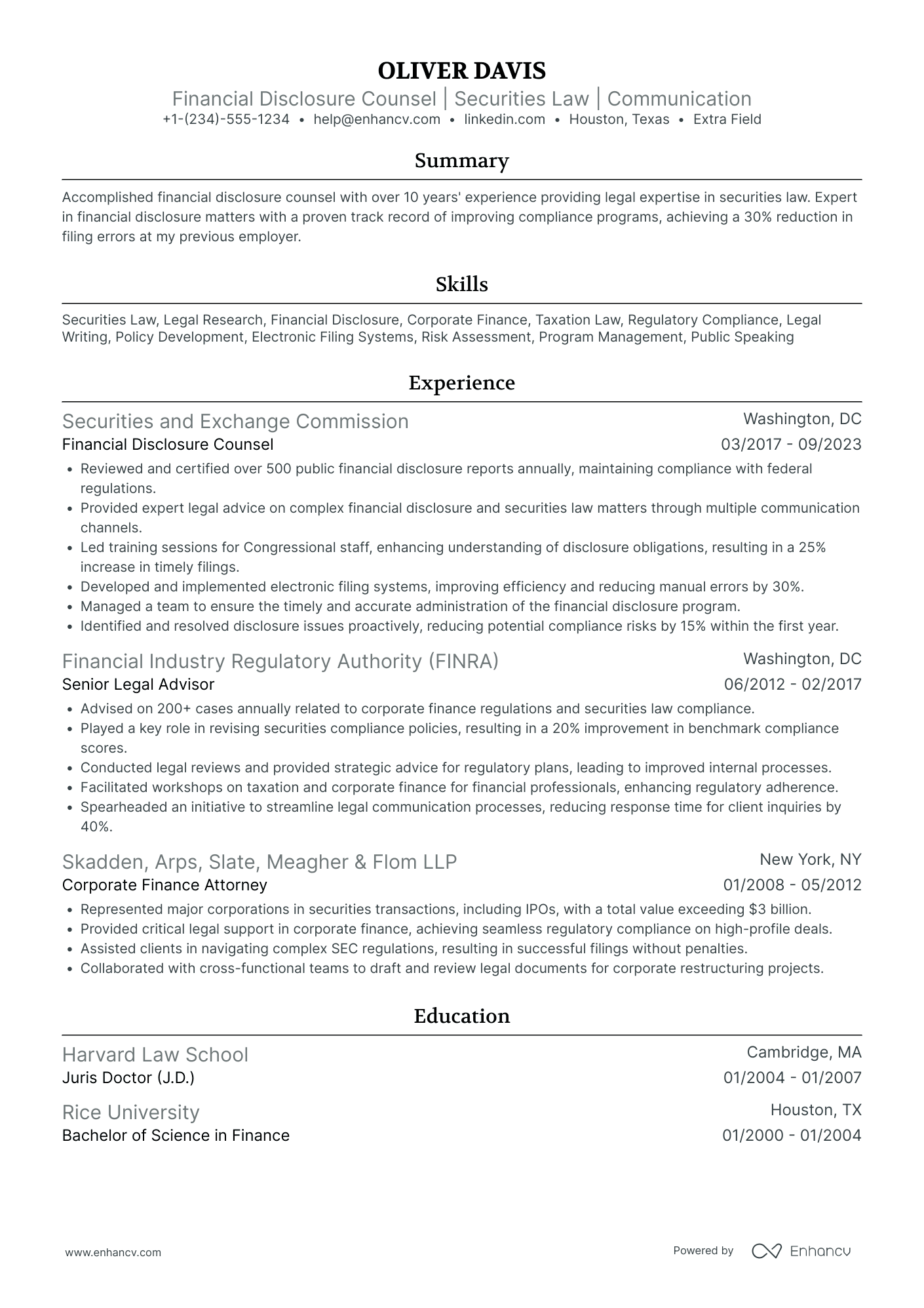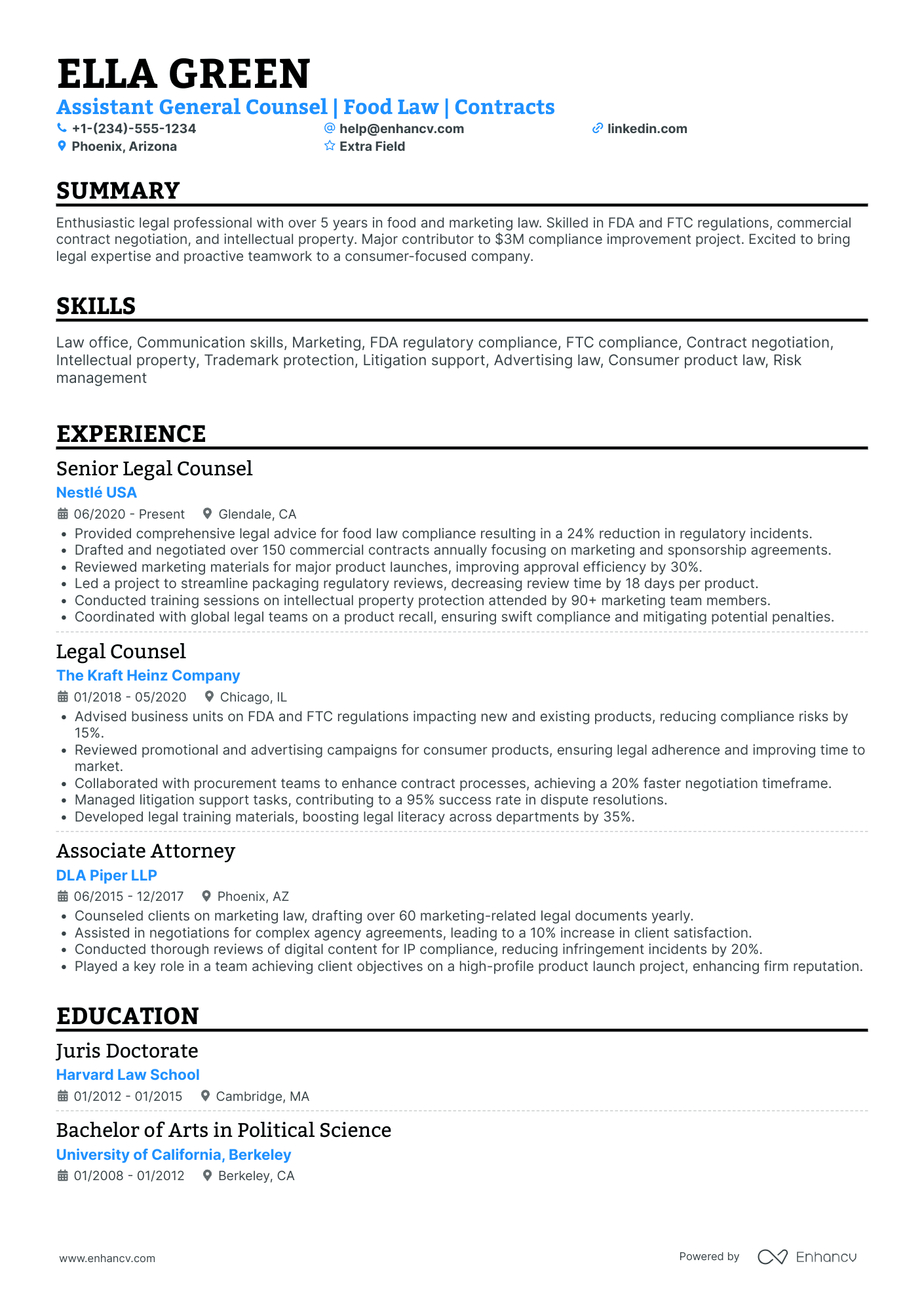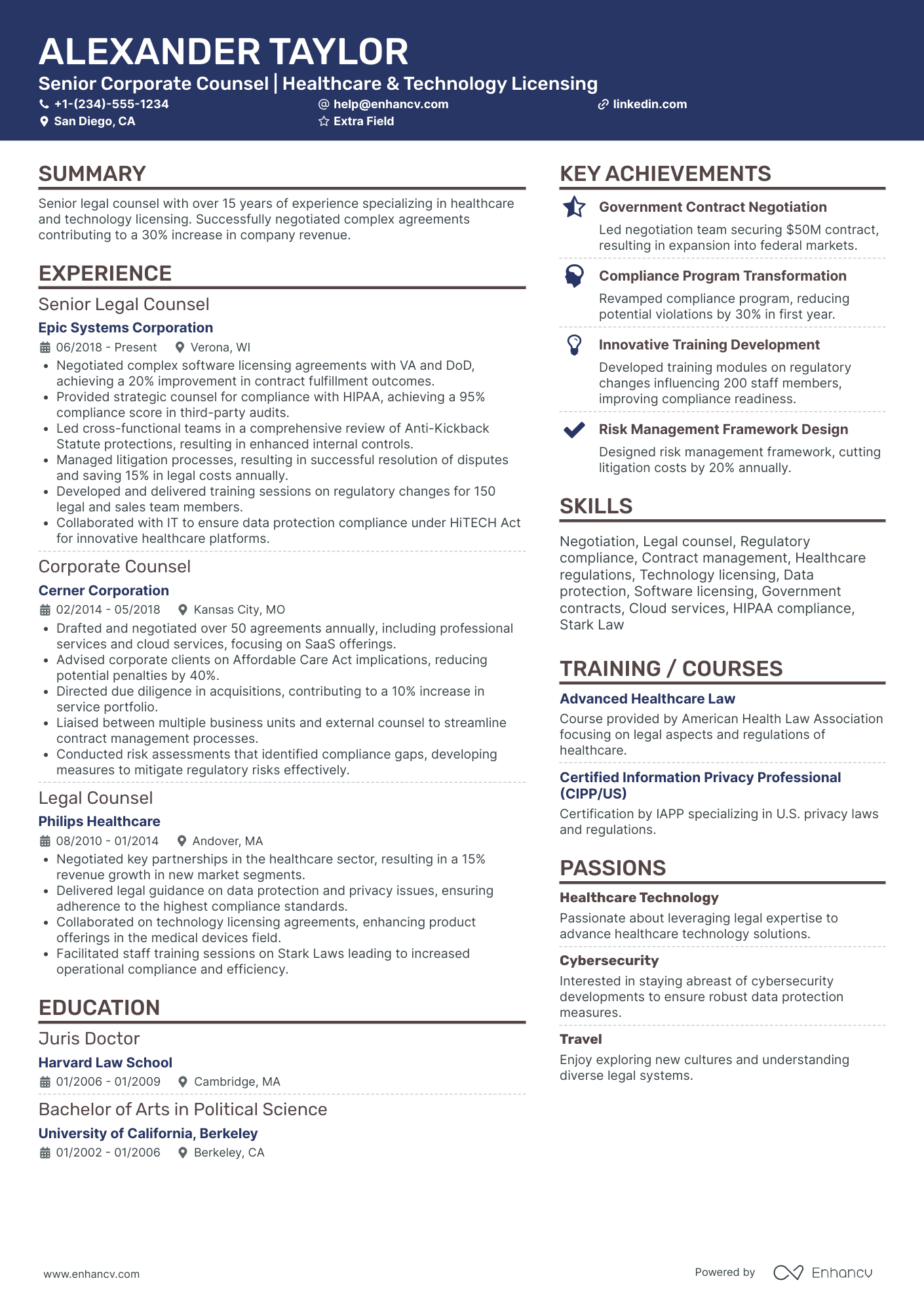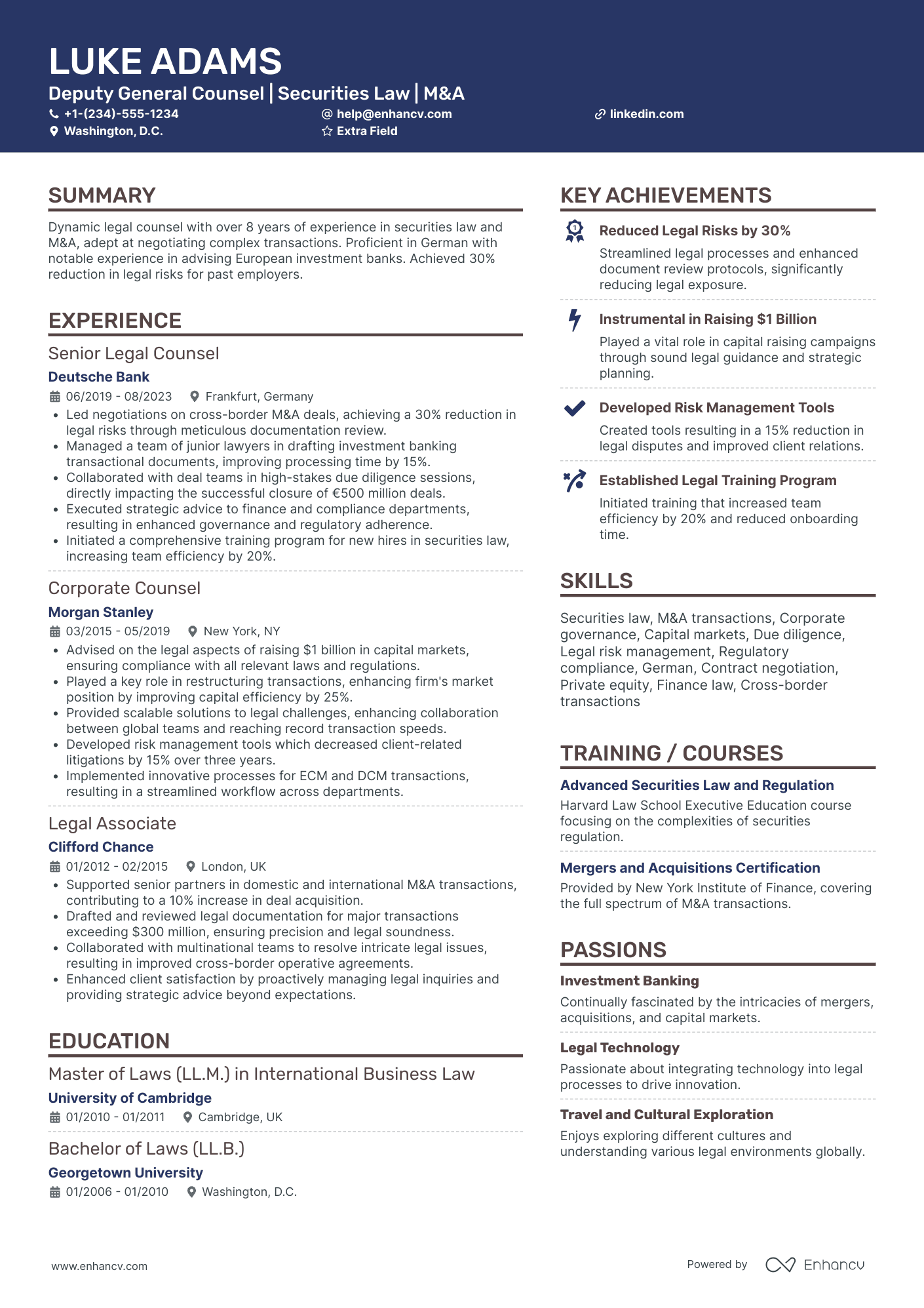Crafting a resume for legal positions can be particularly difficult due to the need to highlight specialized skills and extensive experience concisely. Our resume examples offer targeted strategies to effectively showcase your legal expertise and achievements, making it easier for potential employers to see your true value. Dive into the following examples to gain insights and inspiration for your own resume.
Counsel resume examples
By Experience
By Role
